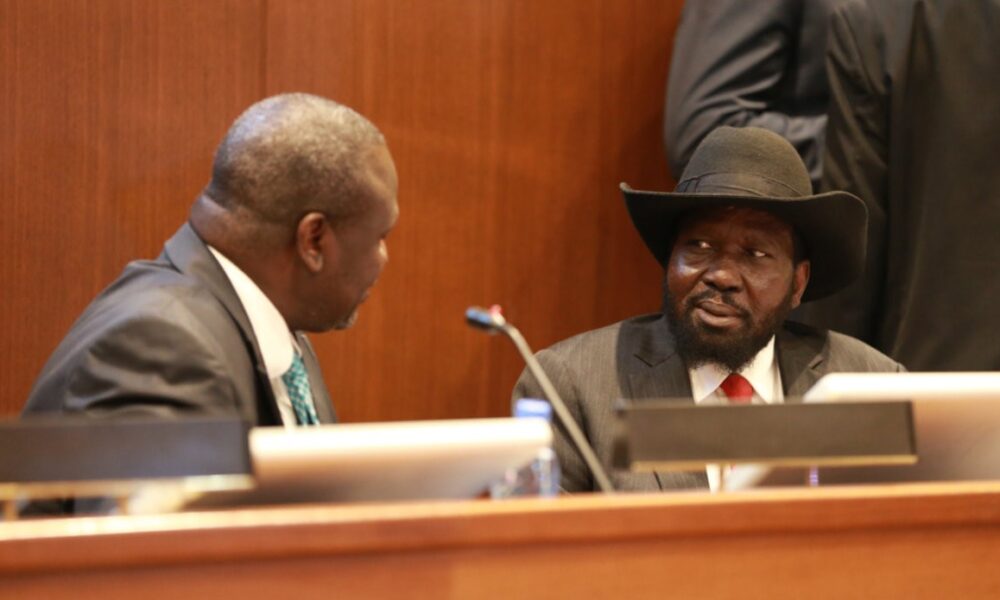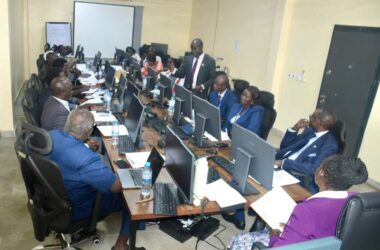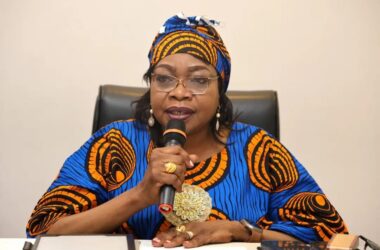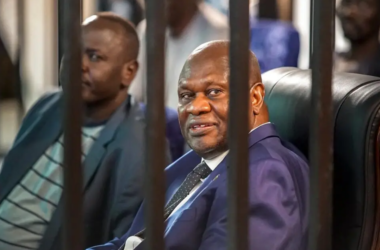By Philip Buda Ladu
Revitalized Peace Agreement (R-ARCSS) is facing significant hurdles that include a lack of political will, a trust deficit among parties, and persistent funding shortages.
As elections slated for December 2026, officials warned that progress is far too slow and that the current trajectory jeopardizes the fragile peace.
Charles Tai Gituai, Interim Chairperson of the Reconstituted Joint Monitoring and Evaluation Commission (RJMEC), painted a concerning picture in his address to the Council.
He underscored that while the National Election Commission (NEC) has developed plans and established offices, financial constraints are severely hampering election preparations.
“Crucially, existing election laws prevent armed parties from registering until they relinquish their forces, highlighting the urgent need for unification of forces” the peace monitor echoed.
Gituai also expressed alarm over continued inter-communal violence and the impact of the Sudan conflict, which has exacerbated the humanitarian crisis and disrupted oil production, the country’s primary revenue source.
Despite these challenges, the RJMEC chair, commended the work of the National Constitutional Amendment Committee (NCAC) and the Judicial Reform Committee, demonstrating that progress is possible with adequate funding.
He further urged the Council to consider a visit to South Sudan to mobilize resources and political support for the upcoming elections.
Nicholas Haysom, Head of the UN Mission in South Sudan (UNMISS), echoed Gituai’s concerns.
He emphasized that there is “no appetite for another extension” of the transitional period, which has already been extended four times.
The UNMISS chief stressed the need for leaders to focus on implementing the benchmarks of the Revitalized Peace Agreement.
While acknowledging some progress in expanding civic space, improving access to justice, and electoral preparedness, Haysom made it clear that these achievements are insufficient.
He pointed to the lack of a harmonized work plan for elections, the mismatch between constitution and census timelines and the election date, and the chronic lack of government funding.
“The clock is already ticking,” Haysom warned, emphasizing that without critical decisions and adequate resources, UNMISS and the international community cannot provide the necessary support.
Edmund Yakani, Executive Director of the Community Empowerment for Progress Organization, underscored the public’s disappointment with repeated election postponements.
“My country is struggling to transition from instability to stability through implementation of the R-ARCSS (Revitalized Agreement on the Resolution of the Conflict in South Sudan),” Yakani observed.
The activist stressed that credible elections are the only path to a peaceful transition, but warned that inter-communal violence poses a significant threat. He urged the government to create the necessary conditions for free and fair elections.
For her part, the representative of South Sudan acknowledged the concerns about delays in the transition process and assured the Council that “every effort is being made to accelerate key milestones, particularly the preparations for free, fair and credible elections”
She pledged her government’s commitment to provide necessary funding and institutional support, highlighting the ongoing efforts to draft a permanent constitution “that will reflect the aspirations of the South Sudanese people” and deploy the Necessary Unified Forces.
Furthermore, she called on all parties, including opposition groups, to engage in good faith negotiations within the framework of the Revitalized Agreement.
She also expressed deep concern about the deteriorating situation in Sudan and accused Sudan of harboring rebels who destabilize South Sudan and raised concerns about the killing of South Sudanese nationals in Sudan.
Meanwhile, the Council members weighed in, echoing the concerns about the slow pace of implementation and stressed the need to advance progress towards elections.
The representative of Sierra Leone, also speaking for Algeria, Guyana and Somalia, highlighted the need for a credible and inclusive electoral process. “For that, security sector reform, disarmament, demobilization and reintegration of armed groups and the full implementation of the transitional security arrangements remain crucial” he stressed.
Many highlighted the need for greater inclusivity in the electoral process, including the participation of internally displaced persons and returnees.
The United States representative was particularly critical, stating that South Sudan’s leaders have not demonstrated the political will to move towards elections and have misused public funds.
“Despite significant international support, South Sudan’s President and other political leaders “have not demonstrated the political will to seriously move towards elections”, he observed, adding: “In fact, they have made efforts worse.”
Other members emphasized the need for increased funding, while some, like China and Russia, called for a review of sanctions, arguing that they hinder security capacity building.
Concerns about sexual and gender-based violence were also raised, with calls for greater protection of women and girls and their meaningful participation in peacebuilding.
In its overall message, the Council maintained that South Sudan must accelerate implementation of the peace agreement, address the critical funding gaps, and demonstrate the political will necessary to hold credible elections in 2026.
Failure to do so risks further instability and undermines the fragile progress made thus far.




